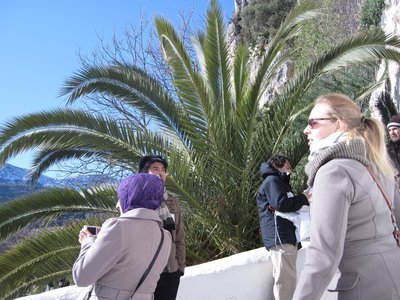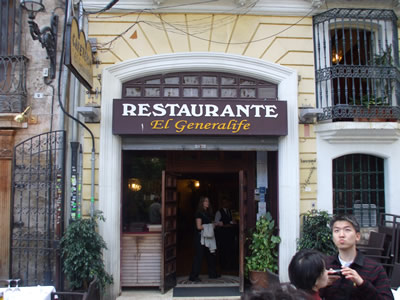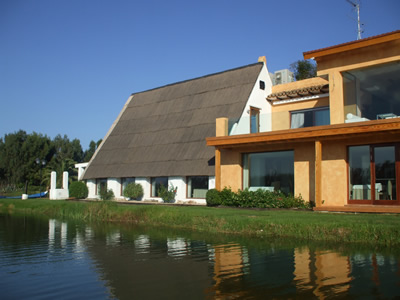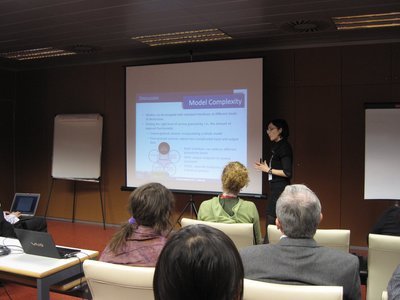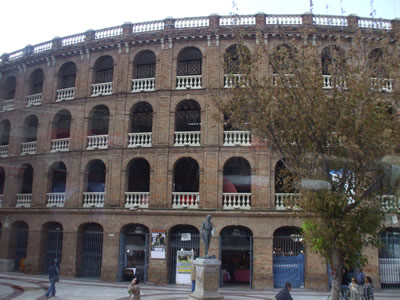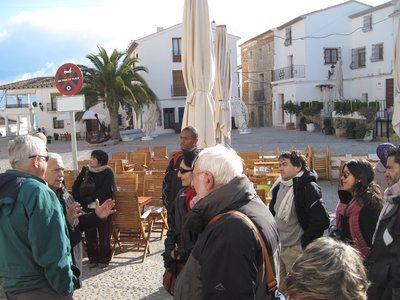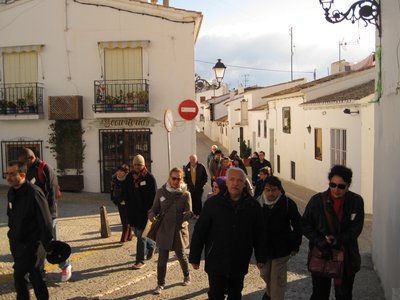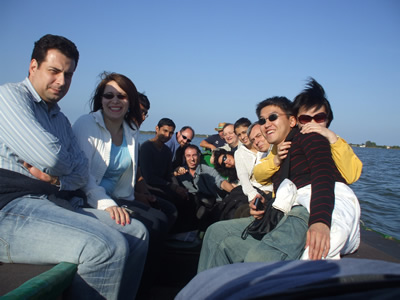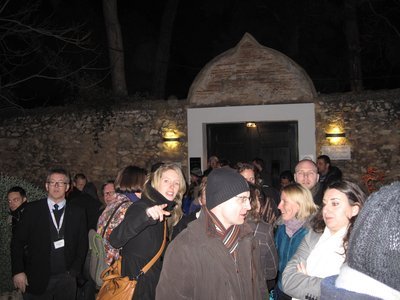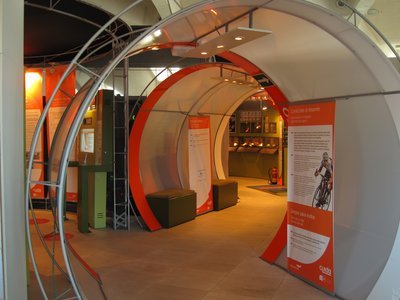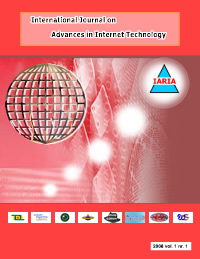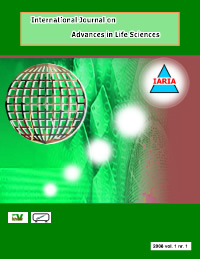SPWID 2025 - The Eleventh International Conference on Smart Portable, Wearable, Implantable and Disability-oriented Devices and Systems
April 06, 2025 - April 10, 2025
SPWID 2025: Call for Papers
Onsite and Online Options: In order to accommodate various situations, we are offering the option for either physical presence or virtual participation (pdf slides or pre-recorded videos).
SPWID 2025, The International Conference on Smart Wearable, Implantable and Disability-oriented Devices and Systems, continues a series of events bridging the concepts and the communities dealing with specialized implantable, wearable, near-body or mobile devices, including artificial organs, body-driven technologies, and assistive services.
Mobile communications played by the proliferation of smartphones and practical aspects of designing such systems and developing specific applications raise particular challenges for a successful acceptance and deployment.
We solicit both academic, research, and industrial contributions. We welcome technical papers presenting research and practical results, position papers addressing the pros and cons of specific proposals, such as those being discussed in the standard fora or in industry consortia, survey papers addressing the key problems and solutions on any of the above topics short papers on work in progress, and panel proposals.
Industrial presentations are not subject to the format and content constraints of regular submissions. We expect short and long presentations that express industrial position and status.
Tutorials on specific related topics and panels on challenging areas are encouraged.
The topics suggested by the conference can be discussed in term of concepts, state of the art, research, standards, implementations, running experiments, applications, and industrial case studies. Authors are invited to submit complete unpublished papers, which are not under review in any other conference or journal in the following, but not limited to, topic areas.
All topics and submission formats are open to both research and industry contributions.
SPWID 2025 conference tracks:
Trends in mobile/wearable/implantable devices
Wearable visual markers; Wrist-worn Sensors; Integrated textile sensors; Piezo-electric sensors; Collar-sensed motion gestures; Touch sensitive fabrics; Forearm smart watches; Magnetic field sensing; Inertial sensing; Commodity WiFi devices; Visually and motor impaired supporting systems; Devices for low vision people; Body orientation sensing; Sensing with smartphones and wearables; Phone-based behavioral patterns; Noninvasive blood screening cameras; Mobile commodity sensors; Skin reading haptic display; Touch-based vibrotactile interactions; Tactile vertical perception in 3D; Finger-worn devices; Skin-friendly materials; Wearables in healthcare and wellbeing; Smart eyeglasses; Swallowing sensing devices; Muscle virtual food texture; Multi-modal wearable ambient display; Fusing Smartphone and Smartwatch sensors; Underwater body sensors
Trends in mobile/wearable/implantable services and technologies
Mobile activity recognition; Smart watches through eye tracking; Wearable-oriented industrial projects; Context-aware personal health assistance services; Human respiration detection systems; Unsupervised recognition and interleaved activities; Smart device-based password manager; Traits perception systems in a smart homes; Intra-Body networks; Inter-Body networks; Walking sensing systems; Urban sensing human mobility systems; Mobile crowd sensing systems; Passive sensing and detection of mental health systems; Hiding sensitive smartphone data; Environments for smart textiles; Wearable reducing anxiety systems; Ambient air pollution systems
Sensing Devices
Wearable devices;
Implantable devices;
Brain-driven devices (brain signal capturing devices);
Wearable sensors, actuators, input/output devices;
Smart textile technologies, textile sensing and feedback, e-textiles, smart fabrics;
Eyewear mounted sensors and actuator systems;
Wearable displays;
Smart watches;
Smart glasses;
Smart night-vision devices;
Smart audio drivers/amplifiers;
Smart accompanying robots;
Manufacturing challenges;
Societal implications, health risk, environmental, privacy aspects
Powering wearable devices
Energy harvesting techniques; Power management (design optimizations to balance sensor+processing+transmission vs. available+generated+received power); Power storage (battery, wireless transmission); Self-rechargeable wearable devices; Self-powering wearable devices.
Mobile Communication
Wearable sensor networks (wireless, on-body, near-body, Internet…);
Augmentative and alternative communication devices;
Computer-operating I/O devices for persons with disabilities;
Wearable applications designed for and delivered via smartphones;
Smartphones as personal wearable communication devices;
Smartphones with sensing modalities;
Interaction and cooperation via smartphones;
Communication with smart-watches, smart-glasses;
Smart communication technologies (e.g., Bluetooth)
Assistive
Smart/intelligent prosthetics;
Organ replacement devices (artificial organs);
Accompanying robots;
Patient/citizen body-driven technology (self-adaptive devices to body's conditions);
Devices for helping services for persons with sense disabilities (blind,
not-mobile, etc.);
Designing large-scale grids and clouds of smartphones for assistive coordination;
Motion detection and activity recognition; Neurological disabilities; Personalization, customization and lifelong learning in activity recognition
System design
Wearable systems design;
Ambient intelligence driven system requirements;
Requirements for augmented context-awareness;
Systems designs combining wearable features and ubiquity;
Designing eyewear systems;
Smartphone services design and service composition;
Smartphone technologies and sensing specialized devices;
User modeling, user evaluation, usability engineering, user experience design;
Cognitive networks for medical communities;
Interfaces (explicit, implicit, hands-free, speech-based, haptics, context-aware …);
Integration of medical assistive devices with healthcare systems;
Human factors, perception, acceptance, ergonomics;
Modeling, simulations and empirical experiments;
Tools, testbeds and deployment challenges
Applications
Design of smart clothing in medicine, wellness, healthcare, disabilities, elderly;
Virtual hospitals;
Ambient-assisted living;
Activity monitoring devices (walking, working, sleeping, exercising, …);
Pain control devices;
Lifestyle improvement devices;
Alert and hazard situations monitoring devices;
Patient/citizen localization;
Life-threatening cases assessments;
Studies based on large cell phone deployments;
Teaching and education;
Consumer markets and entertainment;
Case studies;
Risks with medical devices;
Social impact and acceptance
Deadlines:
Submission | Jan 20, 2025 |
Notification | Feb 16, 2025 |
Registration | Feb 28, 2025 |
Camera ready | Mar 05, 2025 |
Deadlines differ for special tracks. Please consult the conference home page for special tracks Call for Papers (if any).
INSTRUCTION FOR THE AUTHORS
Authors of selected papers will be invited to submit extended versions to one of the IARIA Journals.
Publisher: XPS (Xpert Publishing Services)
Archived: ThinkMindTM Digital Library (free access)
Prints available at Curran Associates, Inc.
How to submit to appropriate indexes.
Only .pdf or .doc files will be accepted for paper submission. All received submissions will be acknowledged via an automated system.
Contribution types
- regular papers [in the proceedings, digital library]
- short papers (work in progress) [in the proceedings, digital library]
- ideas: two pages [in the proceedings, digital library]
- extended abstracts: two pages [in the proceedings, digital library]
- posters: two pages [in the proceedings, digital library]
- posters: slide only [slide-deck posted on www.iaria.org]
- presentations: slide only [slide-deck posted on www.iaria.org]
- demos: two pages [posted on www.iaria.org]
FORMATS
Only .pdf or .doc files will be accepted for paper submission. All received submissions will be acknowledged via an automated system.
Final author manuscripts will be 8.5" x 11", not exceeding 6 pages; max 4 extra pages allowed at additional cost.
Helpful information for paper formatting for MS Word can be found here.
There is a community provided LaTeX template: the CTAN package iaria (with full IARIA formatting rules, including IARIA citation style, but for providing citation style it is tightly bound to pdflatex+biblatex+biber). In addition, there is also iaria-lite (not bound to pdflatex+biblatex+biber, but compatible with any TeX stack; thus, it cannot provide the IARIA citation formattings, but only the titlepage and content-related IARIA formatting rules). Based on the iaria package, there is a minimal working example as Overleaf template. When you are using the LaTeX templates, please still adhere to the additional editorial rules.
Slides-based contributions can use the corporate/university format and style.
Your paper should also comply with the additional editorial rules.
Once you receive the notification of contribution acceptance, you will be provided by the publisher an online author kit with all the steps an author needs to follow to submit the final version. The author kits URL will be included in the letter of acceptance.
We would recommend that you should not use too many extra pages, even if you can afford the extra fees. No more than 2 contributions per event are recommended, as each contribution must be separately registered and paid for. At least one author of each accepted paper must register to ensure that the paper will be included in the conference proceedings and in the digital library, or posted on the www.iaria.org (for slide-based contributions).
CONTRIBUTION TYPE
Regular Papers (up to 6-10 page article -6 pages covered the by regular registration; max 4 extra pages allowed at additional cost- ) (oral presentation)
These contributions could be academic or industrial research, survey, white, implementation-oriented, architecture-oriented, white papers, etc. They will be included in the proceedings, posted in the free-access ThinkMind digital library and sent for indexing. Please submit the contributions following the instructions for the regular submissions using the "Submit a Paper" button and selecting the appropriate contribution type. 12-14 presentation slides are suggested.
Short papers (work in progress) (up to 4 pages long) (oral presentation)
Work-in-progress contributions are welcome. These contributions represent partial achievements of longer-term projects. They could be academic or industrial research, survey, white, implementation-oriented, architecture-oriented, white papers, etc. Please submit the contributions following the instructions for the regular submissions using the "Submit a Paper" button and selecting the contribution type as work in progress. Contributors must follow the conference deadlines, describing early research and novel skeleton ideas in the areas of the conference topics. The work will be published in the conference proceedings, posted in the free-access ThinkMind digital library and sent for indexing. For more details, see the Work in Progress explanation page. 12-14 presentation slides are suggested.
Ideas contributions (2 pages long) (oral presentation)
This category is dedicated to new ideas in their very early stage. Idea contributions are expression of yet to be developed approaches, with pros/cons, not yet consolidated. Ideas contributions are intended for a debate and audience feedback. Please submit the contributions following the instructions for the regular submissions using the "Submit a Paper" button and selecting the contribution type as Idea. Contributors must follow the conference deadlines, describing early research and novel skeleton ideas in the areas of the conference topics. The work will be published in the conference proceedings, posted in the free-access ThinkMind digital library and sent for indexing. For more details, see the Ideas explanation page. 12-14 presentation slides are suggested.
Extended abstracts (2 pages long) (oral presentation)
Extended abstracts summarize a long potential publication with noticeable results. It is intended for sharing yet to be written, or further on intended for a journal publication. Please submit the contributions following the instructions for the regular submissions using the "Submit a Paper" button and selecting the contribution type as Extended abstract. Contributors must follow the conference deadlines, describing early research and novel skeleton ideas in the areas of the conference topics. The work will be published in the conference proceedings, posted in the free-access ThinkMind digital library and sent for indexing. 12-14 presentation slides are suggested.
Posters (paper-based, two pages long) (oral presentation)
Posters are intended for ongoing research projects, concrete realizations, or industrial applications/projects presentations. The poster may be presented during sessions reserved for posters, or mixed with presentation of articles of similar topic. A two-page paper summarizes a presentation intended to be a POSTER. This allows an author to summarize a series of results and expose them via a big number of figures, graphics and tables. Please submit the contributions following the instructions for the regular submissions using the "Submit a Paper" button and selecting the contribution type as Poster Two Pages. Contributors must follow the conference deadlines, describing early research and novel skeleton ideas in the areas of the conference topics. The work will be published in the conference proceedings, posted in the free-access ThinkMind digital library and sent for indexing. 8-10 presentation slides are suggested. Also a big Poster is suitable, used for live discussions with the attendees, in addition to the oral presentation.
Posters (slide-based, only) (oral presentation)
Posters are intended for ongoing research projects, concrete realizations, or industrial applications/projects presentations. The poster may be presented during sessions reserved for posters, or mixed with presentation of articles of similar topic. The slides must have comprehensive comments. This type of contribution only requires a 8-10 slide-deck. Please submit the contributions following the instructions for the regular submissions using the "Submit a Paper" button and selecting the contribution type as Poster (slide-only). The slide-deck will be posted, post-event, on www.iaria.org.
8-10 presentation slides are suggested. Also a big Poster is suitable, used for live discussions with the attendees, additionally to the oral presentation.
Presentations (slide-based, only) (oral presentation)
These contributions represent technical marketing/industrial/business/positioning presentations. This type of contribution only requires a 12-14 slide-deck. Please submit the contributions following the submission instructions by using the "Submit a Paper" button and selecting the contribution type as Presentation (slide-only). The slide-deck will be posted, post-event, on www.iaria.org.
12-14 presentation slides are suggested.
Demos (two pages) [posted on www.iaria.org]
Demos represent special contributions where a tool, an implementation of an application, or a freshly implemented system is presented in its alfa/beta version. It might also be intended for thsoe new application to gather the attendee opinion. A two-page summary for a demo is intended to be. It would be scheduled in special time spots, to ensure a maximum attendance from the participants. Please submit the contributions following the submission instructions by using the "Submit a Paper" button and selecting the contribution type as Demos. The Demos paper will be posted, post-event, on www.iaria.org.
Tutorial proposals
Tutorials provide overviews of current high interest topics. Proposals should be for 2-3 hour long. Proposals must contain the title, the summary of the content, and the biography of the presenter(s). The tutorial slide decks will be posted on the IARIA site.
Please send your proposals to tutorial proposal
Panel proposals
The organizers encourage scientists and industry leaders to organize dedicated panels dealing with controversial and challenging topics and paradigms. Panel moderators are asked to identify their guests and manage that their appropriate talk supports timely reach our deadlines. Moderators must specifically submit an official proposal, indicating their background, panelist names, their affiliation, the topic of the panel, as well as short biographies. The panel slide deck will be posted on the IARIA site.
Please send your proposals to panel proposal
